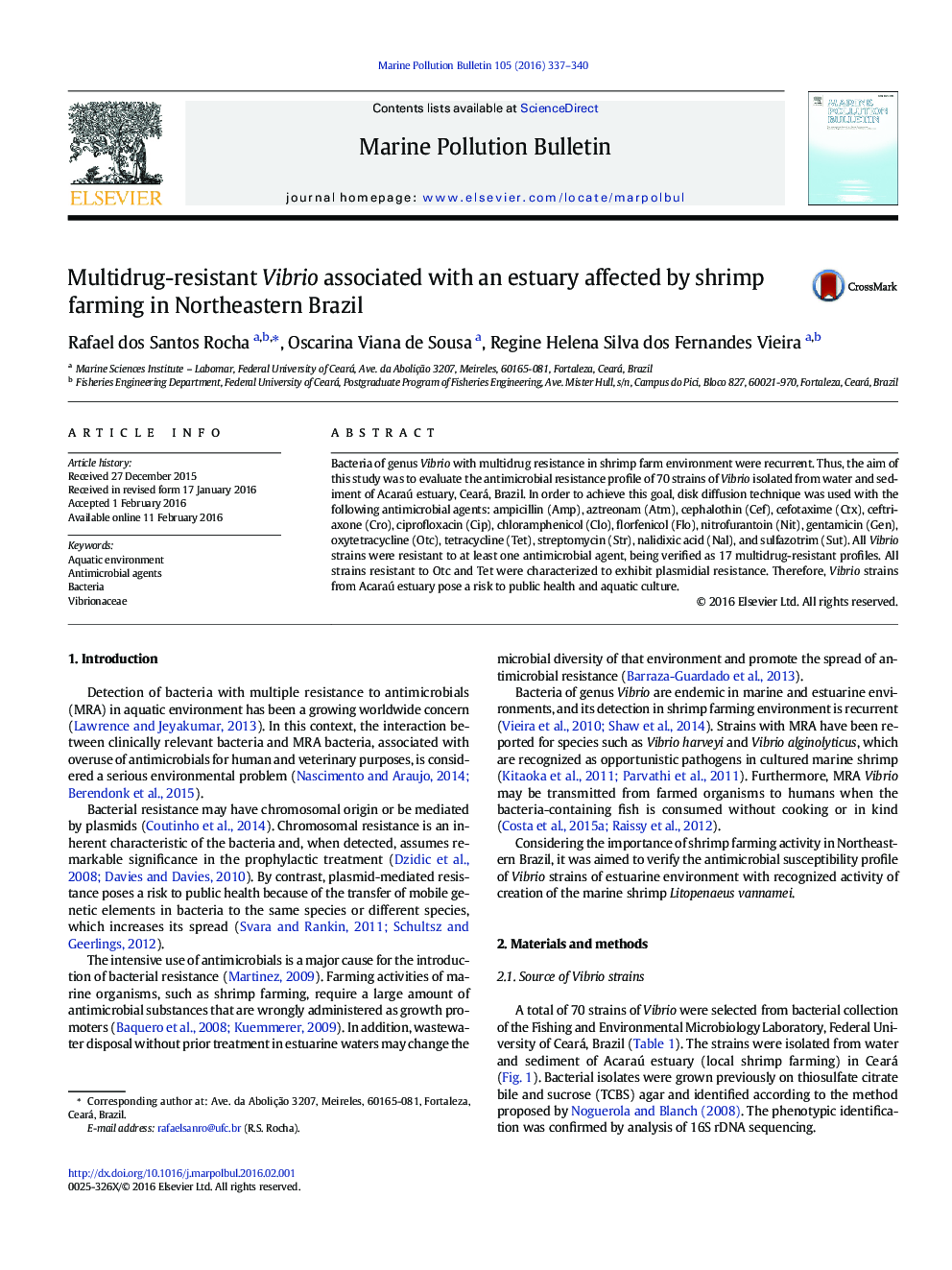| Article ID | Journal | Published Year | Pages | File Type |
|---|---|---|---|---|
| 4476547 | Marine Pollution Bulletin | 2016 | 4 Pages |
•Bacteria of genus Vibrio are opportunistic pathogens of shrimp Litopenaeus vannamei.•The uncontrolled use of antimicrobials in aquaculture has contributed to the development of resistant strains of Vibrio.•It was possible to verify the presence of multidrug-resistant Vibrio strains.•Plasmid resistance of Vibrio strains poses a risk to public health.
Bacteria of genus Vibrio with multidrug resistance in shrimp farm environment were recurrent. Thus, the aim of this study was to evaluate the antimicrobial resistance profile of 70 strains of Vibrio isolated from water and sediment of Acaraú estuary, Ceará, Brazil. In order to achieve this goal, disk diffusion technique was used with the following antimicrobial agents: ampicillin (Amp), aztreonam (Atm), cephalothin (Cef), cefotaxime (Ctx), ceftriaxone (Cro), ciprofloxacin (Cip), chloramphenicol (Clo), florfenicol (Flo), nitrofurantoin (Nit), gentamicin (Gen), oxytetracycline (Otc), tetracycline (Tet), streptomycin (Str), nalidixic acid (Nal), and sulfazotrim (Sut). All Vibrio strains were resistant to at least one antimicrobial agent, being verified as 17 multidrug-resistant profiles. All strains resistant to Otc and Tet were characterized to exhibit plasmidial resistance. Therefore, Vibrio strains from Acaraú estuary pose a risk to public health and aquatic culture.
